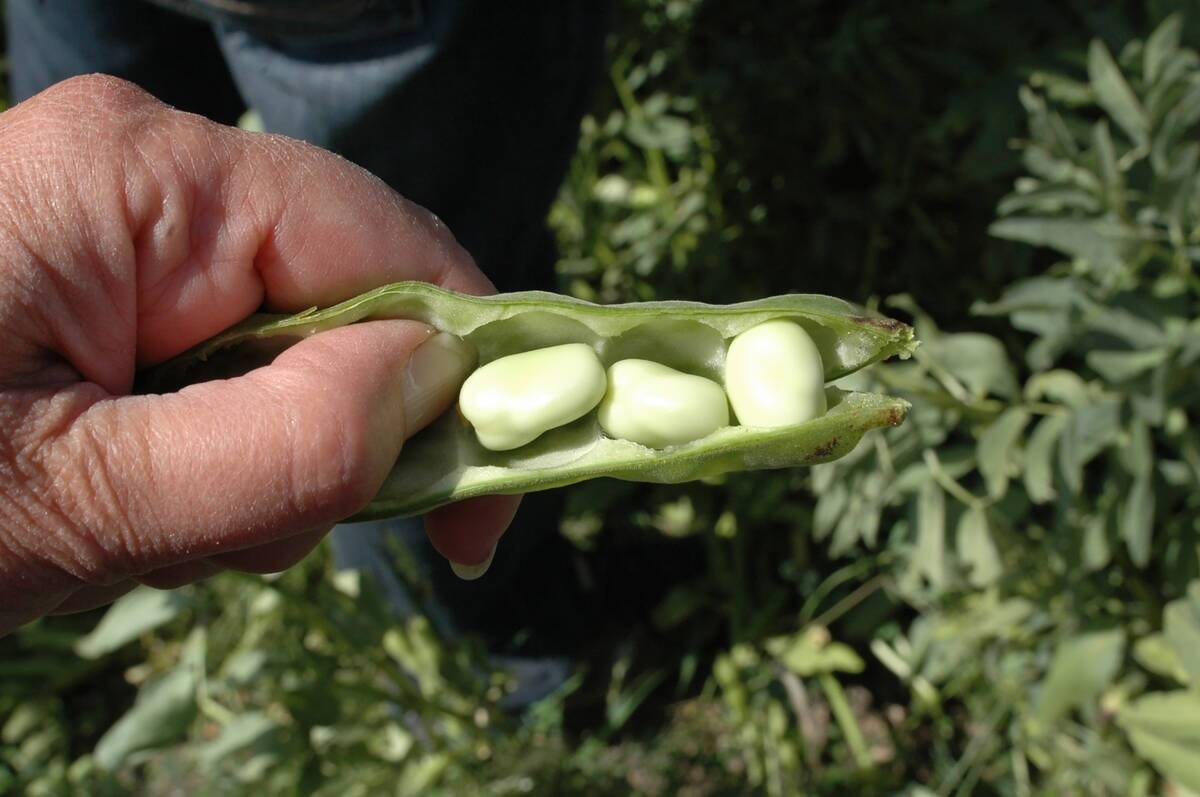Farmers should keep in mind the Spring Price Endorsement (SPE) to protect the price of this year’s canola crop, says Neil Blue, a market specialist with Alberta Agriculture and Rural Development.
The 2014 canola spring price under the SPE program from Agriculture Financial Services Corporation is $9.75 per bushel.
“A payout under the SPE would be triggered if the fall price drops by more than 10 per cent from this spring price,” said Blue.
That means the payout would be triggered if the calculated fall price is below $8.775 per bushel.
Read Also

New crop insurer policy enables easier startup for faba beans
Agriculture Financial Services Corporation updated its normals for faba beans, which may open the door for more Canadian producers to feel comfortable growing the pulse crop in the future.
“That payout would equal the spring price of $9.75 per bushel minus the fall price times crop insurance coverage in bushels,” he said. “SPE coverage is limited to a 50 per cent price drop from the spring price of $9.75, or to $4.88 per bushel for 2014.”
The fall price for canola for 2014 is calculated by finding the average of the daily closing prices for ICE Futures Canada November canola during the month of October, and then subtracting $20 per tonne, which represents an average basis level. To trigger a payout under SPE, the closing November futures price average during October would have to be less than $406.90 per tonne.
- More from the Alberta Farmer Express: ICE canola weakens with good weather
“The current price for November canola futures is about $490 per tonne, far above the price of $406.90 per tonne, the calculated futures trigger for the Spring Price Endorsement,” said Blue. “Also note that depending on location and buyer, current Alberta basis levels for October canola delivery are much weaker than the $20-per-tonne average basis level used in the SPE fall price calculation. The Alberta October delivery basis levels currently range from $43 to $70 per tonne under the November futures. Those basis levels can weaken or strengthen any time at the discretion of each buyer.”
Blue said farmers should gather all the information about the various pricing alternatives and consider their costs of production and financial needs, as well as estimated crop carry-over, storage capacity and potential production.
“It may be prudent in the current crop-marketing environment to use several different pricing alternatives to distribute the pricing risks of your upcoming crop,” said Blue.
Farmers with their own futures account may consider buying a put option to lock in a minimum futures price.
“For example, with today’s November canola futures price of $494 per tonne, the cost of buying a November $490 put option is about $24 per tonne,” he said.
A put option can also be sold before expiry to capture a premium, and there is greater timing flexibility and decision choice with a futures account, he added.
Neither the Spring Price Endorsement nor the put option includes a commitment for physical delivery, and neither alternative locks in the basis.
“That situation can be an advantage, but having a delivery commitment has become a more important factor this spring due to restricted crop deliveries and carry-over crop,” said Blue. “Therefore, some farmers may choose to sign one of several types of contracts directly with a physical canola buyer, all of which contain a delivery commitment.”
Commonly available contracts include deferred delivery contracts, basis contracts, and minimum price contracts.
“The potential disadvantage of a contract with a physical buyer is the delivery commitment, and the possible need in the case of a production shortfall to pay a buyout penalty relating to that shortfall,” said Blue. “Before signing such a contract, consider asking the buyer how an Act of God clause could be incorporated into the delivery contract.”















